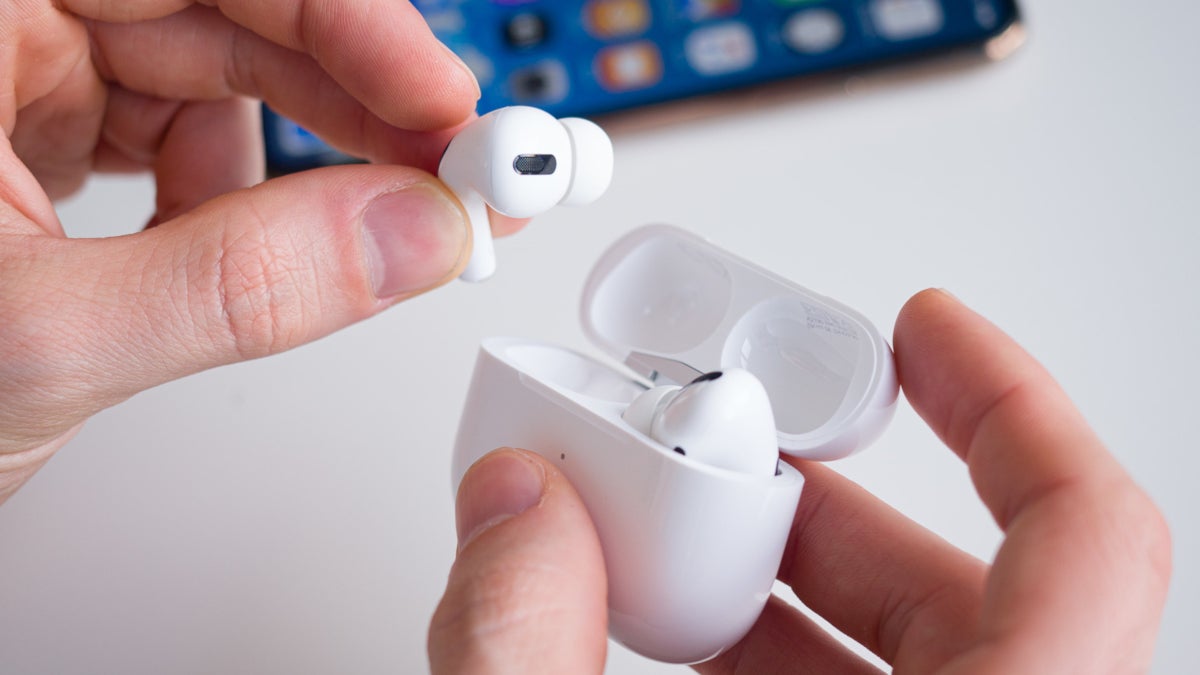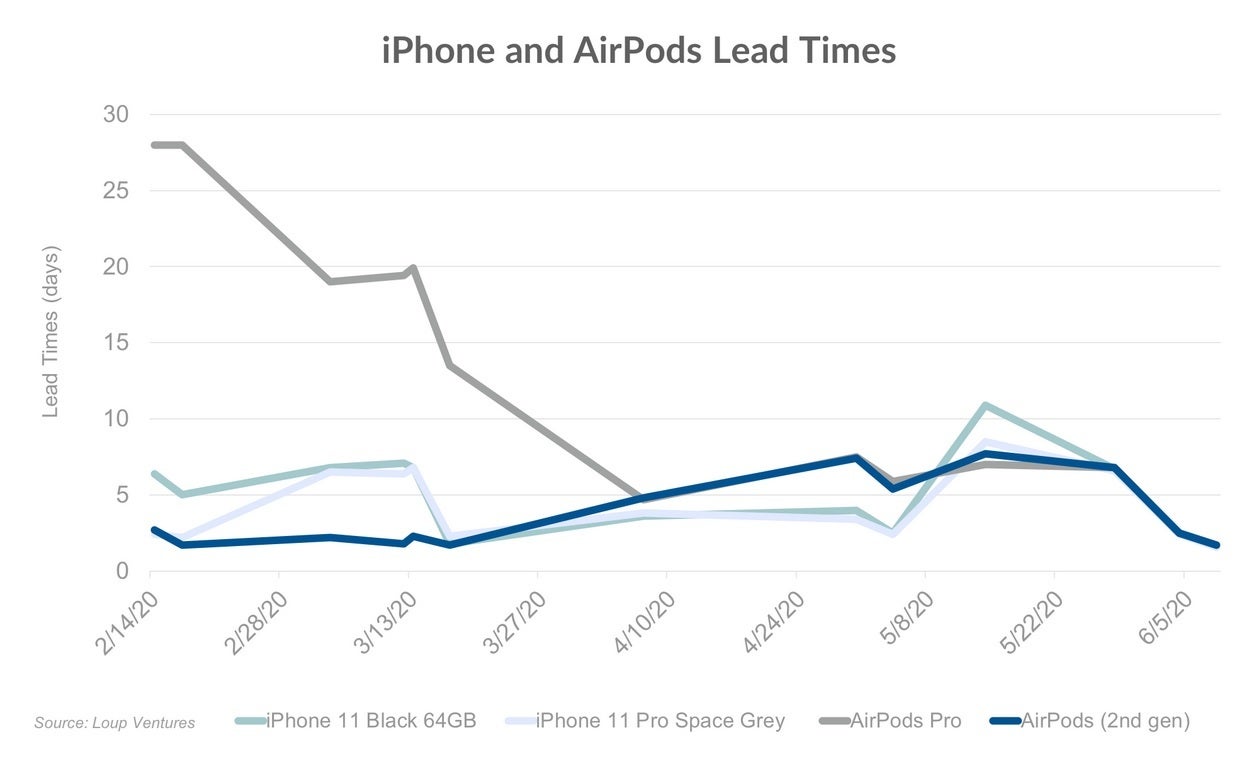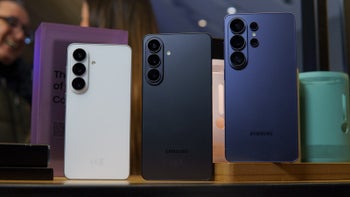Production of Apple iPhones and AirPods might have returned to pre-pandemic levels

According to analyst Gene Munster of Loup Ventures, Apple's supply chain has returned to January 2020 levels of production. This is important because, during the peak of the COVID-19 pandemic in Asia, many of Apple's suppliers and contract manufacturers were shut down. Munster says that his analysis is based on the shrinking of iPhone and AirPods lead times. That is the time it takes for Apple to ship an order after it is placed by a consumer. Munster writes, "As of mid-June, Apple’s supply chain and production appear to have returned to levels consistent with early January 2020. We believe this is evidence that Apple’s supply chain is back to full strength."
Lead times for the Apple iPhone and AirPods Pro shrink indicating that Apple's production and supply chain is back to full-strength
If this is indeed the case, there might not be a delay-or a very slight one-for the release of the 5G 2020 iPhone 12 models. Analysts have been all over the place with some expecting the new handsets to be launched as late as early 2021. It would be best for Apple if the company can stick to the traditional September unveiling and launch. A slight delay is not unheard of and in fact, such a thing has taken place in two out of the last three years. In 2017, the iPhone X was launched on November 3rd and in the following year, the iPhone XR wasn't made available until October 26th. Last year, all three members of the iPhone 11 family were available starting on September 20th.

Lead times shrink for the iPhone and AirPods indicating a return to normal production for Apple
Munster notes that the lead time for the 64GB iPhone 11 and 64GB iPhone 11 Pro have dropped dramatically to 1.6 days from 13.6 days on March 13th and 9.7 days as recently as May 14th. AirPods lead times (based on the second-generation wireless Bluetooth earbuds and the pricier "Pro" model) peaked at 15.4 days on Valentine's Day, February 14th. That greater than two-week delay is now down to 1.7 days.
Looking specifically at the AirPods Pro, the lead time started at 28 days on February 14th when Loup Ventures first tracked the lead time for the in-ear wearable. That four-week lead time has been reduced greatly down to 1.7 days due to four factors in order of importance. One, when the AirPods Pro first launched in October of last year, production of the accessory was on the low side at first. When production picked up, the lead time went down. That is practically always the case; when production goes up; lead time goes down. Demand for the AirPods Pro, the other side of the Supply-Demand equation, soared during the holiday season (Apple's fiscal first quarter of 2020) lengthening lead times. Once Santa had finished making his deliveries, demand dropped off resulting in faster lead times.
Also helping to reduce lead times for the AirPods Pro over the last few months is the resumption of production in China and the gain in capacity achieved by these manufacturers. And finally, the economic fallout from the COVID-19 pandemic has caused demand to fall off. Weakness in demand leads to increases in inventory which reduces a product's lead time.
Munster points out that tracking lead times is useful. He said, "We’ve tracked online lead times for Apple products over the past decade, sensitive to the reality that drawing insights from the data is tempered by the unknown supply, demand dynamic. Despite the shortcomings of the method, historically, it has been a useful tool." He points out that long lead times for certain iPhone models following the latest launch of the device is "an accurate measure of higher demand." He also notes that short lead times forecast the least successful iPhone launches. Munster also gives a specific recent example. During Apple's fiscal Q1 of 2020, the AirPods Pro recorded the aforementioned greater than four-week lead time. During that quarter, Apple's wearables unit enjoyed record revenue with AirPods top-line growth estimated at a gain of 75% year-over-year.
Follow us on Google News













Things that are NOT allowed:
To help keep our community safe and free from spam, we apply temporary limits to newly created accounts: